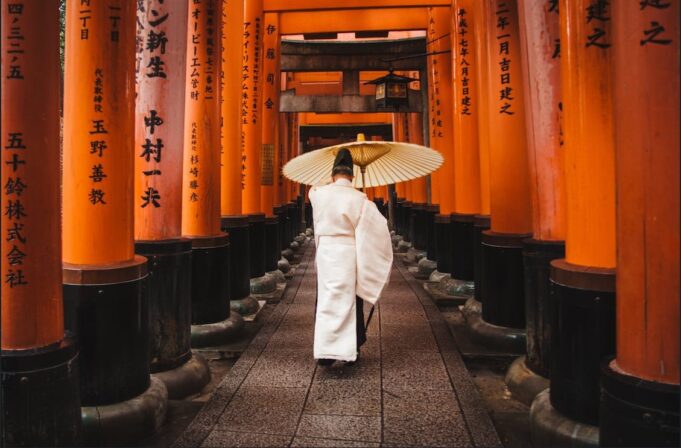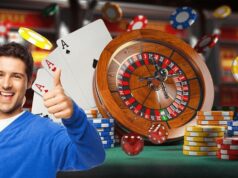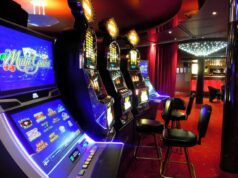The well-known and long-standing gambling game known as Cho-Han Bakuchi, or just Cho-Han for short, is one type that is strongly ingrained in the Japanese cultural tradition. The bakuto, also known as itinerant gamblers, were responsible for the vast majority of the gambling that took place in old Japan. It is still well-liked by the yakuza today, Japan’s organized crime.
Two regular dice with six sides each are required for play in this game. Someone shakes the dice in a cup made of bamboo. The players are instructed to place their wagers based on the total of the numbers that appear on both dice. It is possible for it to be even (Cho), or it could be odd (Han). The dealer will typically remove their shirt and sit on the floor in a seiza position. This is done so that they are less likely to be accused of cheating, but also so that they can display their colorful tattoos. In contemporary movies, the dealer may be a woman with a kimono that typically exposes one arm.
The Cultural Role of Gambling in Japanese Society
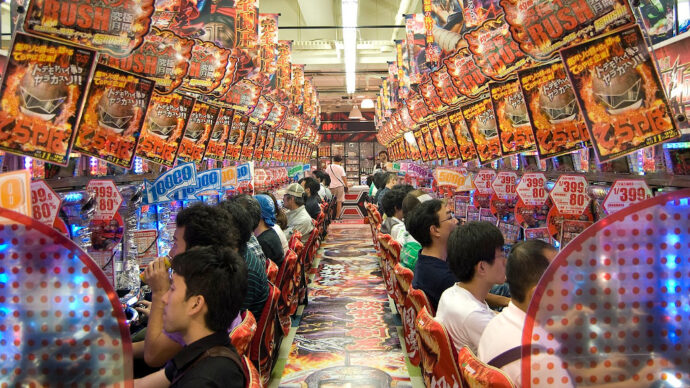
Pachinko parlors first appeared in the 1940s and quickly spread throughout the country, making gambling extremely accessible. Pachinko is not considered to be gambling under Japanese law, which allows for the unrestricted growth of enormous betting throughout the nation.
Public casinos run by the state and federal governments have been added to pachinko. Lotteries, boat races, bicycle races, and horse races are some of the public sports that have been given the green light.
You may now place bets using your smartphone, gaming console, or computer thanks to advances in technology. Alternatively, you can go to a physical establishment to place bets.
Japanese Still Find Ways to Gamble
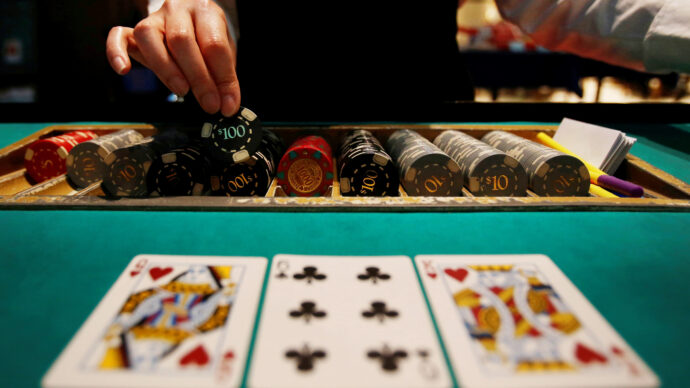
Japan has banned casinos and almost all other modern forms of gambling, at least for now. Online wagering on sports such as horse and bicycle racing is the only form of legalized gambling in Japan, but even this is subject to stringent controls. These include the lottery, football pools (called “Toto”), and public sports betting, which is allowed by special laws and brings in a lot of money for the government.
In 2018, the Japanese authorities announced certain amendments to the regulations that governed illegal casinos, making it possible for some consolidated resorts to have casinos operating legally within their premises. It will be some time, though, before casinos can be called to dominate the Japanese gambling market in the same manner they do in the United States. Pachinko, on the other hand, is already a well-established and widely played game in Japan. Although in the strictest sense of the word, this would not be considered a form of gambling, in practice, it most certainly is!
Pachinko Is Regarded As The Most Important Of Japan’s Gambling Games
Who doesn’t enjoy the adrenaline rush that comes with gambling? When the government of Japan outlawed practically all forms of gambling, the Japanese came up with their own solution: Pachinko. The Pachinko machine emits a noise similar to that of a pinball machine, hence the name. It’s a piece of equipment that looks like a cross between a classic arcade game and a cutting-edge slot machine.
The primary reason we stated before that it’s “not truly a sort of gambling, but it is!” is because Japanese individuals discovered a gap in the regulations governing gaming in their country. It is against the law in Japan to gamble for real money, and winners of pachinko machines are not permitted to take their winnings in cash or leave the establishment in which the game was played. The balls are essentially worthless, but it is legal to swap them with the parlor for unique prize tokens. These tokens are sold for cash at a kiosk close to the parlor.
In Japan, pachinko machines are ubiquitous and extremely popular gaming devices. Each and every day, tens of thousands of individuals can be seen waiting in line at gambling parlors located all throughout the United States to participate in this activity. The majority of consumers are salaried professionals who are gambling in order to pass part of their limited spare time and try their luck. On the other hand, there are also housewives who enjoy playing pachinko, especially with the goal of earning some more spending money.
Sports Betting Is The Second-Most Popular Type Of Gambling
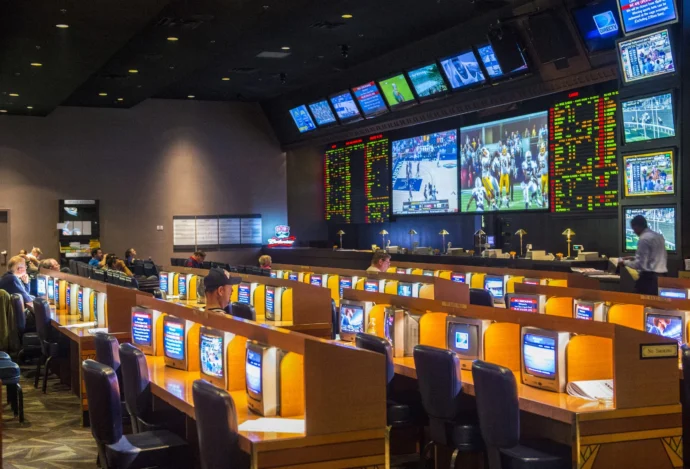
In addition to the game of pachinko, one of the most well-liked activities in Japan is betting on sporting events such as horse racing, which is also referred to as keiba. Since Pachinko is not really a game of chance, Keiba is the most popular way to gamble in Japan. The JRA is in charge of regulating the majority of Keiba events (Japanese Racing Association). Every weekend, the Jockey Racing Association (JRA) hosts horse races at one of its 10 racetracks located across the country. In addition, there are other races that are not managed by the JRA that are organized by other local government agencies across the country.
Anyone above the age of 20 can place a wager on a horse race in Japan, although the minimum age to enter the track and witness the races is 20. Keiba draws hard-core gamblers from throughout the world. If you would like to immerse yourself in the electrifying environment that surrounds betting on horse races, then you should pay a visit to these races. Other well-known opportunities for wagering on sports in Japan include the Kyotei (Boat Racing) and the Keirin (Auto Racing).

